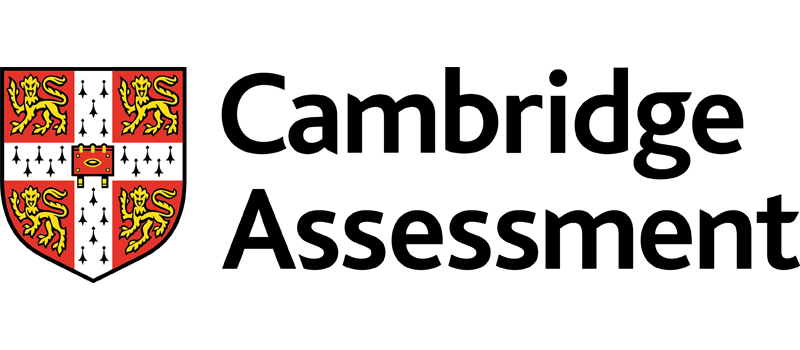
Marketing Analytics and Metrics
Course ID: 2507280101283ESH
Course Dates : 28/07/25 Course Duration : 5 Studying Day/s Course Location: London, UK
Language: Bilingual
Course Category: Professional and CPD Training Programs
Course Subcategories: Operations and Process Excellence
Course Certified By: ESHub CPD & LondonUni - Executive Management Training
* Professional Training and CPD Programs
Leading to:
Executive Diploma Certificate
Leading to:
Executive Mini Masters Certificate
Leading to
Executive Masters Certificate
Certification Will Be Issued From :
From London, United Kingdom
Course Fees: £5,120.30
Vat Not Included in the price. VAT may vary depending on the country where the course or workshop is held.
Click to Pay
Date has passed please contact us Sales@e-s-hub.com
Course Information
Introduction
The field of marketing has undergone a seismic transformation over the past decade, driven by the proliferation of data and advancements in analytical tools. Organizations now operate in an era where decisions are increasingly informed by data rather than intuition alone. Marketing analytics and metrics serve as the cornerstone of this evolution, enabling businesses to measure performance, optimize campaigns, and drive strategic growth. For professionals navigating this dynamic landscape, understanding how to harness the power of data is no longer optional—it is imperative. This course delves into the methodologies, frameworks, and tools that empower marketers to extract actionable insights from raw data, bridging the gap between creativity and quantitative rigor.
One of the most pressing challenges in modern marketing is the overwhelming volume of data available. While organizations collect vast amounts of information through digital platforms, social media, and customer interactions, many struggle to translate this data into meaningful strategies. According to the Harvard Business Review, 70% of companies fail to fully leverage their data due to a lack of analytical expertise. This course addresses this critical gap by equipping participants with the skills to interpret key metrics, identify trends, and make data-driven recommendations. By focusing on both theoretical foundations and practical applications, the program ensures that learners can apply their knowledge immediately in real-world scenarios.
Consider the case of a global e-commerce company that revamped its marketing strategy using predictive analytics. By analyzing customer behavior patterns, the organization identified high-value segments and tailored its campaigns accordingly, resulting in a 25% increase in conversion rates. Such success stories underscore the transformative potential of marketing analytics. Participants will explore similar examples throughout the course, gaining insights into how leading brands have leveraged metrics to enhance customer engagement, improve ROI, and foster innovation. These case studies not only illustrate the practical applications of the course material but also inspire participants to think critically about their own organizational challenges.
The benefits of mastering marketing analytics extend beyond individual career advancement. For organizations, employees proficient in analytics contribute to more efficient resource allocation, improved decision-making, and competitive differentiation. On a personal level, professionals who develop expertise in this area position themselves as indispensable assets within their teams. The course draws on established theories such as the AIDA model (Attention, Interest, Desire, Action) and the Balanced Scorecard framework to provide a structured approach to measuring marketing effectiveness. By integrating these foundational concepts with cutting-edge tools like Google Analytics and Tableau, participants gain a holistic understanding of the discipline.
Another dimension of the course is its focus on addressing ethical considerations in data usage. As privacy concerns and regulatory requirements continue to evolve, marketers must navigate complex landscapes such as GDPR and CCPA. The program emphasizes the importance of responsible data practices, ensuring that participants not only excel in technical competencies but also uphold ethical standards. This dual focus on technical proficiency and ethical responsibility prepares learners to lead with integrity in an increasingly scrutinized industry.
Ultimately, this course is designed to empower professionals to thrive in a data-driven world. Whether you are a seasoned marketer seeking to refine your skills or a newcomer eager to enter the field, the program offers a comprehensive pathway to mastery. By blending theory, practice, and industry insights, it equips participants with the tools they need to transform data into actionable strategies and measurable outcomes. Join us on this journey to unlock the full potential of marketing analytics and metrics.
Objectives
By attending this course, participants will be able to:
Analyze key marketing metrics such as customer acquisition cost (CAC), lifetime value (LTV), and return on investment (ROI) to evaluate campaign performance.
Evaluate the effectiveness of various data visualization tools and select the most appropriate ones for specific business needs.
Design data-driven marketing strategies that align with organizational goals and target audience preferences.
Implement advanced analytics techniques, including predictive modeling and segmentation, to optimize marketing efforts.
Apply ethical frameworks to ensure compliance with data privacy regulations and maintain consumer trust.
Synthesize insights from cross-channel analytics to create cohesive and impactful marketing campaigns.
Assess emerging trends in marketing technology and adapt strategies to leverage new opportunities.
Who Should Attend?
This course is ideal for:
Marketing managers and analysts seeking to enhance their data interpretation skills.
Digital marketers aiming to integrate analytics into their campaign workflows.
Business owners and entrepreneurs looking to maximize ROI through data-driven strategies.
Consultants and strategists tasked with advising clients on marketing performance.
Professionals across industries such as retail, finance, healthcare, and technology will find the course invaluable, as it addresses universal challenges in leveraging data for competitive advantage. While prior experience in marketing is beneficial, the course is structured to accommodate beginners and intermediate learners, providing foundational knowledge alongside advanced applications. Advanced practitioners may also benefit from the focus on emerging trends and ethical considerations.
Training Method
• Pre-assessment
• Live group instruction
• Use of real-world examples, case studies and exercises
• Interactive participation and discussion
• Power point presentation, LCD and flip chart
• Group activities and tests
• Each participant receives a 7” Tablet containing a copy of the presentation, slides and handouts
• Post-assessment
Program Support
This program is supported by:
* Interactive discussions
* Role-play
* Case studies and highlight the techniques available to the participants.
Daily Agenda
Daily Schedule (Monday to Friday)
- 09:00 AM – 10:30 AM Technical Session 1
- 10:30 AM – 12:00 PM Technical Session 2
- 12:00 PM – 01:00 PM Technical Session 3
- 01:00 PM – 02:00 PM Lunch Break (If Applicable)
- Participants are expected to engage in guided self-study, reading, or personal reflection on the day’s content. This contributes toward the CPD accreditation and deepens conceptual understanding.
- 02:00 PM – 04:00 PM Self-Study & Reflection
Please Note:
- All training sessions are conducted from Monday to Friday, following the standard working week observed in the United Kingdom and European Union. Saturday and Sunday are official weekends and are not counted as part of the course duration.
- Coffee and refreshments are available on a floating basis throughout the morning. Participants may help themselves at their convenience to ensure an uninterrupted learning experience Provided if applicable and subject to course delivery arrangements.
- Lunch Provided if applicable and subject to course delivery arrangements.
Course Outlines
Foundations of Marketing Analytics
Introduction to marketing analytics and its role in decision-making.
Key metrics: Definitions, calculations, and interpretations.
Overview of data collection methods and tools.
Ethical considerations in data usage and privacy.
Day 2:
Data Visualization and Reporting
Principles of effective data visualization.
Hands-on training with tools like Tableau and Power BI.
Creating dashboards for real-time performance tracking.
Best practices for presenting insights to stakeholders.
Day 3:
Advanced Analytical Techniques
Predictive modeling and its applications in marketing.
Customer segmentation and targeting strategies.
A/B testing methodologies and statistical significance.
Leveraging machine learning for campaign optimization.
Day 4:
Cross-Channel Analytics and Integration
Measuring performance across digital channels (social media, email, SEO).
Integrating offline and online data for a unified view.
Attribution modeling and its impact on budget allocation.
Case studies of successful cross-channel campaigns.
Day 5:
Emerging Trends and Strategic Applications
Exploring AI and automation in marketing analytics.
Adapting to changes in consumer behavior and technology.
Future-proofing strategies for long-term success.
Capstone project: Developing a data-driven marketing plan.



















































